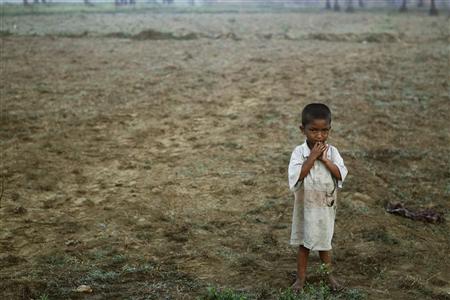
In western Myanmar,
89 people have been killed in clashes between Buddhist Rakhines and
Muslim Rohingyas, according to the latest official toll covering the
last 10 days of October. Many thousands more have been displaced by the
violence.
"We are deeply
concerned by these events and by the consequences for the reforms and
democratization of the country. We hope that all religious leaders will
call for restraint," Barroso said in a speech, a copy of which was
released in Brussels.
"The EU stands
ready to mobilize 4 million euros ($5.14 million) for immediate
humanitarian needs, provided access to the affected areas is
guaranteed," Barroso added.
He was speaking in
Myanmar at a newly established peace center designed to aid dialogue
between all parties in Myanmar's peace process. During his visit to the
country he also held talks with President Thein Sein.
The European Union,
winner of this year's Nobel Peace Prize, has contributed 700,000 euros
to starting up the peace center, to be followed by further funds.
In 2013, the bloc will contribute 30 million euros to Myanmar's ethnic peace process, a Commission statement said.After five decades of brutal junta rule, Myanmar has stunned the world with rapid economic and democratic change, which has led to an easing of sanctions imposed by the United States and the European Union to encourage further reforms. ($1 = 0.7785 euros)
(Reporting by Barbara Lewis; Editing by Stephen Powell)
No comments:
Post a Comment